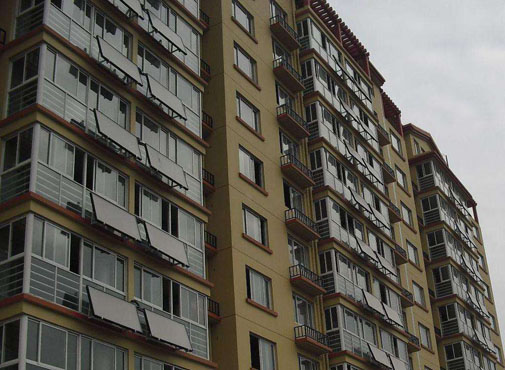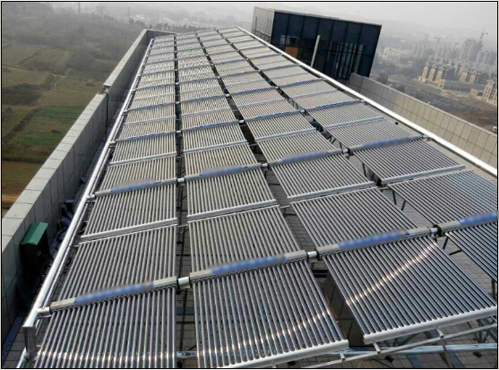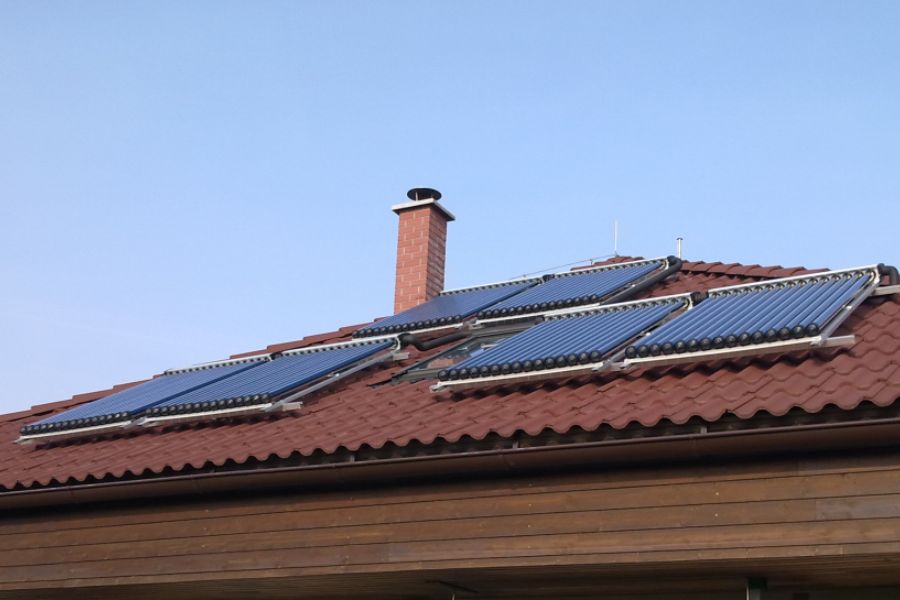Solar Heating Project
| ECO496 | |
| 200W-800W | |
| 410*580*260mm | |
| 13.4kgs |
- Description
- Solar water heating systems
- Contact Us Now
Solar Water Heating Project for Hotels, apartments, fitness centers, spas, factories, schools, hospitals and other public places need to use a lot of hot water every day and energy expenditures account for a large part of the cost.
• One-time investment in solar heating can recover investment costs in 2 to 4 years.
Community Solar heating system can be used for 15-20 years, so it is obviously to see the fixed income in the future.
• Solar heating systems are becoming popular in central heating systems.
• Suneco hot water heating system is mainly designed for central heating projects of 20 persons or more. The larger the project, the more obvious the effect of energy saving and cost reduction.
Solar Water Heating Project system consists mainly of hot water storage tanks, solar collectors, solar controllers, circulation pumps, expansion tanks, valve fittings and piping.
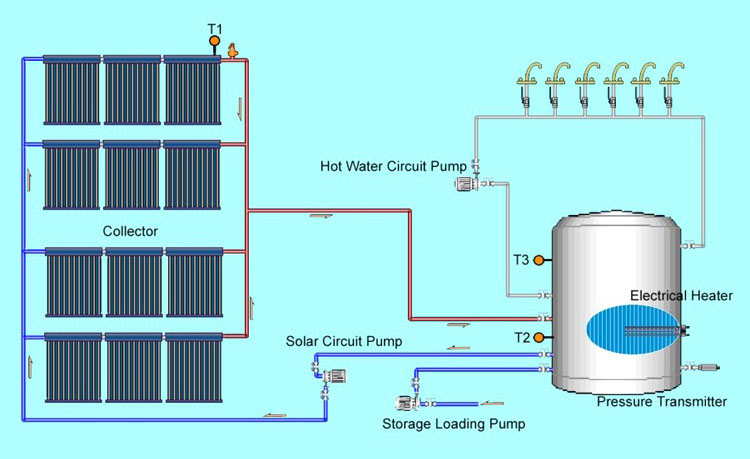
To make a solar water heating project come true, there are several steps that need to be followed:
- Conduct a Feasibility Study: The first step in making a solar water heating project come true is to conduct a feasibility study. This study should evaluate the site’s solar potential, energy needs, hot water usage patterns, and other factors to determine whether a solar water heating system is a viable option.
- Develop a Project Plan: Once the feasibility study is complete, a project plan should be developed. This plan should include the system design, equipment selection, installation timeline, and budget.
- Find a reliable solar water heater supplier: You can consult solar water heater factory in China, they will give you advice and make drawing for your solar water heating project.
- Install the System: Once all permits have been obtained, the solar water heating system can be installed. This may involve the installation of solar collectors, storage tanks, piping, and other equipment.
- Commission the System: After installation is complete, the solar water heating system must be commissioned. This involves testing the system to ensure that it is operating correctly and efficiently.
- Monitor and Maintain the System: After commissioning, the solar water heating system should be monitored and maintained on a regular basis to ensure optimal performance. This may involve regular inspections, cleaning, and repairs as needed.
Overall, making a solar water heating project come true requires careful planning, installation, and maintenance. It is important to work with experienced professionals and follow all necessary regulations and guidelines to ensure a successful project.
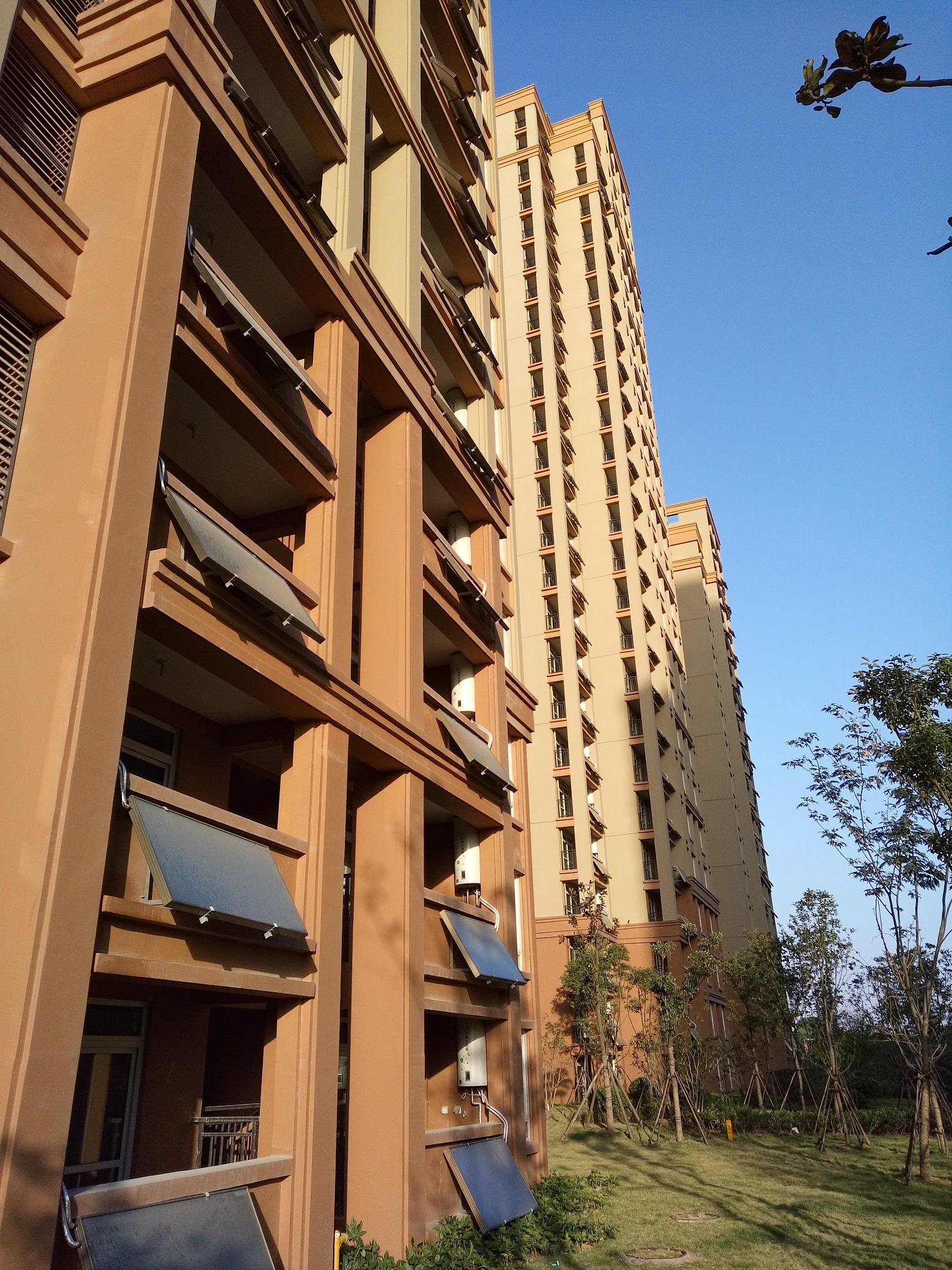
Solar water heating projects can provide many advantages for hotels, apartments, fitness centers, spas, factories, schools, hospitals, and other public places. Here are some of the main advantages:
- Reduced Energy Costs: Solar water heating systems can significantly reduce energy costs associated with heating water. This can result in significant cost savings for hotels, apartments, fitness centers, spas, factories, schools, hospitals, and other public places that require large amounts of hot water.
- Environmentally Friendly: Solar water heating systems are environmentally friendly and can help reduce carbon emissions associated with traditional heating systems. This can help public places meet their sustainability goals and reduce their impact on the environment.
- Reliable and Low Maintenance: Solar water heating systems are reliable and require low maintenance. Once installed, they can provide hot water for many years with minimal maintenance requirements.
- Long Lifespan: Solar water heating systems have a long lifespan and can provide hot water for up to 20-30 years. This makes them a cost-effective investment for public places that require hot water on a regular basis.
- Improved Property Value: Installing solar water heating systems can improve the property value of hotels, apartments, fitness centers, spas, factories, schools, hospitals, and other public places. This can provide a competitive advantage in the marketplace and attract more customers or tenants.
- Government Incentives: In many countries, there are government incentives available for installing solar water heating systems. These incentives can help offset the upfront cost of installation and provide additional cost savings.
Overall, solar water heating projects can provide many benefits for public places, including reduced energy costs, environmental sustainability, reliability, low maintenance, long lifespan, improved property value, and government incentives.
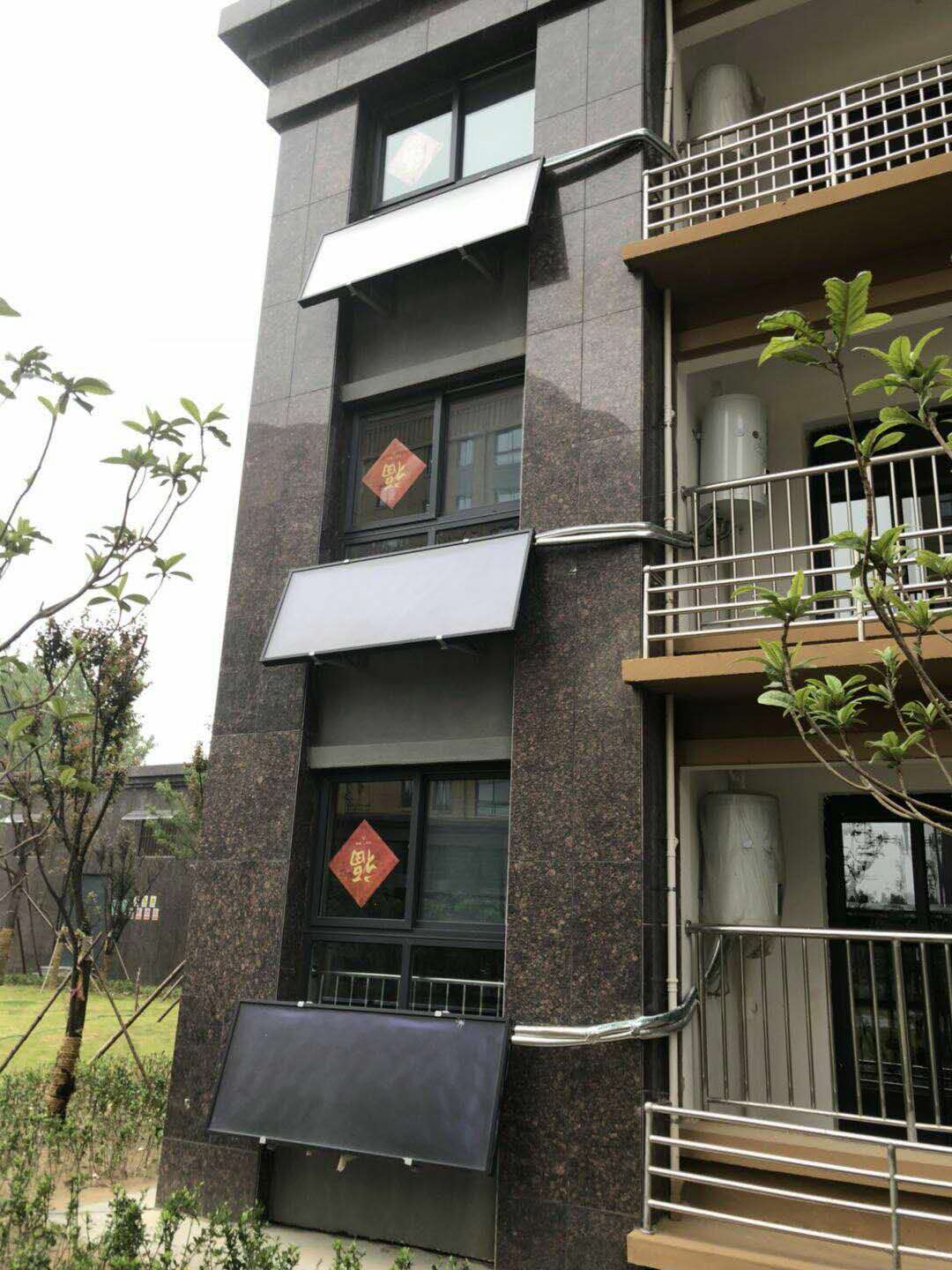
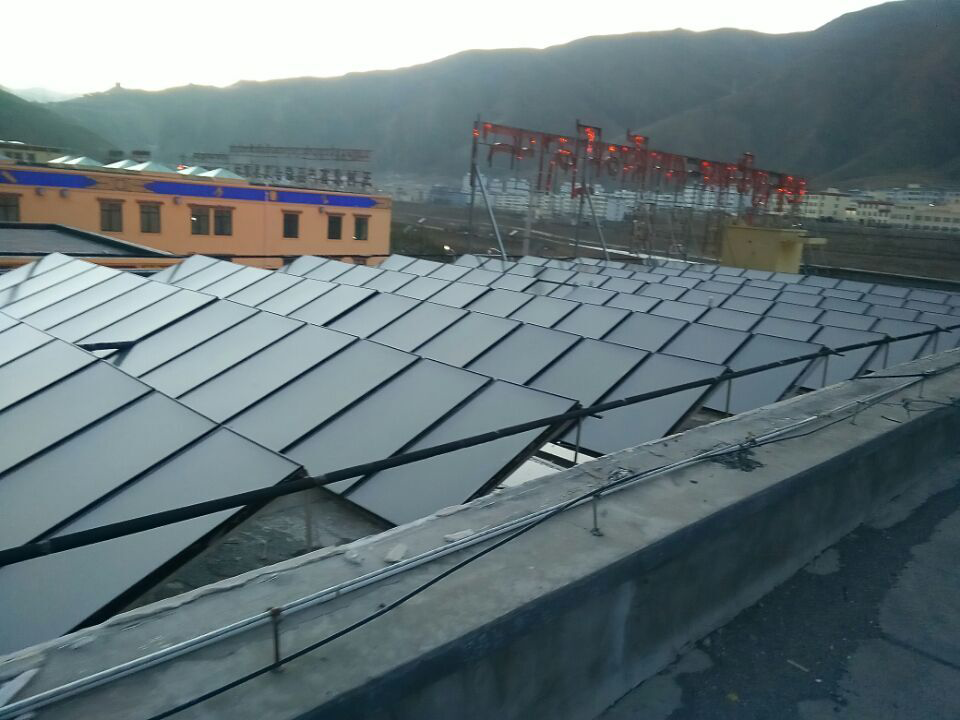
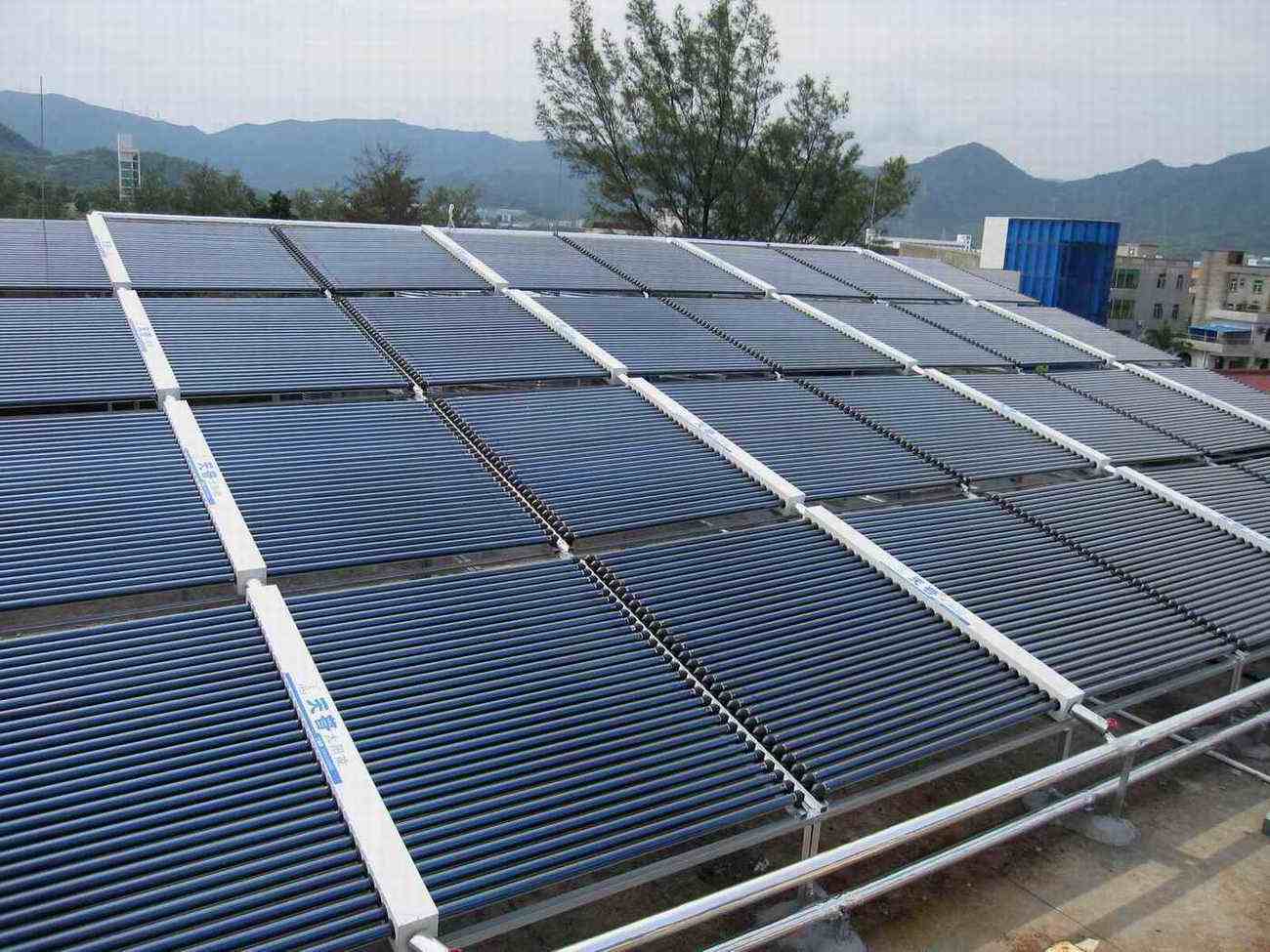
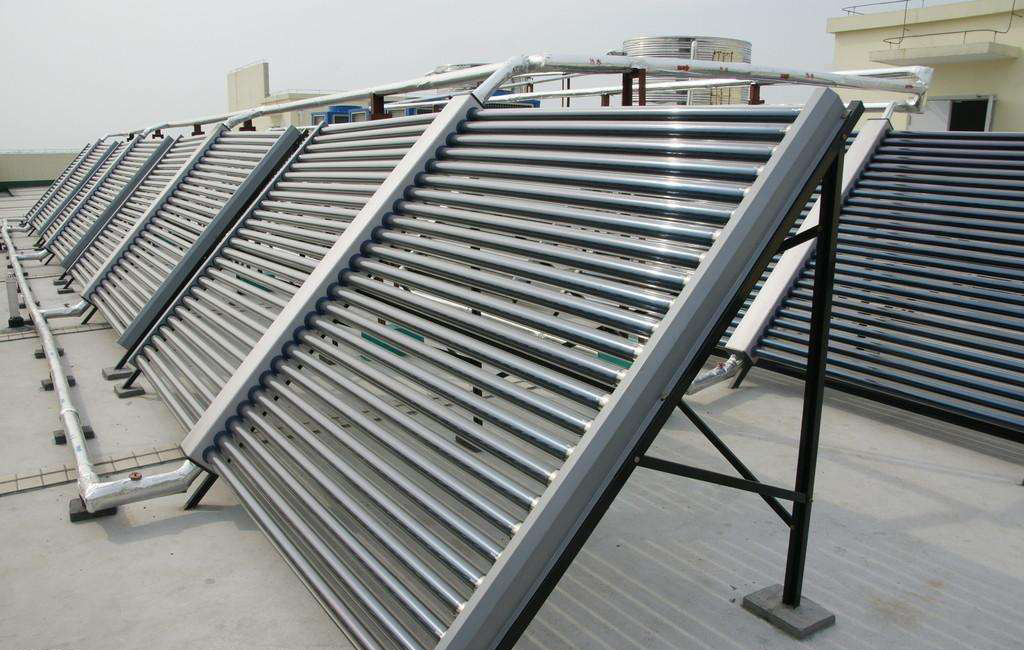
Solar water heating systems can be used for large-scale applications, such as in hotels, hospitals, industrial processes, and swimming pools. Here are some examples of large-scale solar water heating applications:
- Hotels: Many hotels use solar water heating systems to meet their hot water needs. Solar collectors can be installed on the roof or ground to collect sunlight and heat water that is then stored in large tanks. These systems can significantly reduce a hotel’s energy bills and carbon footprint.
- Hospitals: Hospitals require large amounts of hot water for various uses, such as sterilization and cleaning. Solar water heating systems can help hospitals reduce their energy costs and reliance on fossil fuels. You can choose all glass tube solar collectors or flat plat solar collectors.
- Industrial processes: Many industrial processes require hot water, such as food processing and textile manufacturing. Solar water heating systems can be used to provide hot water for these processes, reducing energy costs and emissions.
- Swimming pools: Solar water heating systems can be used to heat swimming pools, which require large amounts of hot water. Solar collectors can be installed on the roof or ground near the pool to collect sunlight and heat water that is then circulated through the pool’s heating system. This can reduce energy costs associated with heating the pool, as well as the carbon footprint of the facility.
- Agriculture: Solar water heating systems can also be used in agriculture for irrigation purposes. Solar collectors can be used to heat water that is then used to irrigate crops, reducing energy costs and reliance on fossil fuels.
- District heating: In some cities, solar water heating systems can be used for district heating, which involves providing hot water to multiple buildings in a centralized system. Solar collectors can be installed on rooftops or in large arrays to collect sunlight and heat water that is then circulated through a network of pipes to provide hot water to multiple buildings.
Overall, solar water heating systems can be used for a variety of large-scale applications and can provide significant energy and cost savings, as well as reduce carbon emissions.

